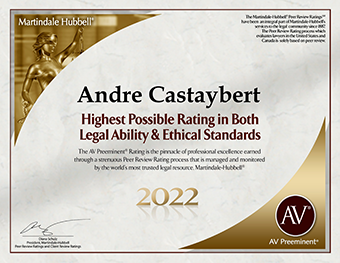June 5, 2023
The pre-mediation statement gives each party an opportunity to present background information on the dispute and advise the mediator of its respective position. It also allows you to share your client’s position on the facts and the law with the other party so that all participants gain a comprehensive understanding of the parties positions and goals before the mediation begins.
A Pre-Mediation Statement typically has six parts:
- Background of the dispute
- A summary of the facts
- A narrative of the party’s legal position
- A recitation of settlement negotiations
- A description of the settlement position
- Attachments of strong evidence as exhibits
The parties may consent to disclose their statements to the other party prior to the scheduled mediation, or the statements can be confidential and only seen by the mediator. As will be explained in a future post, often the parties exchange pre-mediation statements, sometimes responses, and are invited to submit separate side-letters for the mediator’s eyes only. Confidential side-letters allow a party to share information with the mediator that they are reluctant to share with the potential adversary in mediation.
Occasionally, a mediator may request each party to include certain information in their pre-mediation statement, such as acceptable settlement terms, information from previous settlement conversations, or a specific format for the statement. If the mediator does not mention their preferences in the pre-mediation conference, it is advisable to consult with the mediator directly to determine the mediator’s preferences for the format and nature of the statement. The process of drafting a pre-mediation statement allows the parties to each consider their goals and potential solutions before the mediation begins. Considering different settlement positions in advance of the mediation increases the likelihood of finding a mutually beneficial solution and ultimately will promote a more productive and effective mediation. While the pre-mediation statements exchanged by the parties are confidential to the outside world, it is advisable for the statement to include an explicit sentence that makes it clear that the statement is confidential and submitted for settlement purposes only.
The pre-mediation statement is a crucial step in the mediation process to educate the mediator, but also the parties, and to identify the issues and goals that matter to each side. Review of the parties’ pre-mediation statement will allow the mediator to prepare for the mediation and think beforehand of potential creative solutions and proposals for the parties to consider, both as a matter of process for the mediation, and for creating a framework for settlement discussions.
To read how Castaybert PLLC can assist you with mediation, click here.







